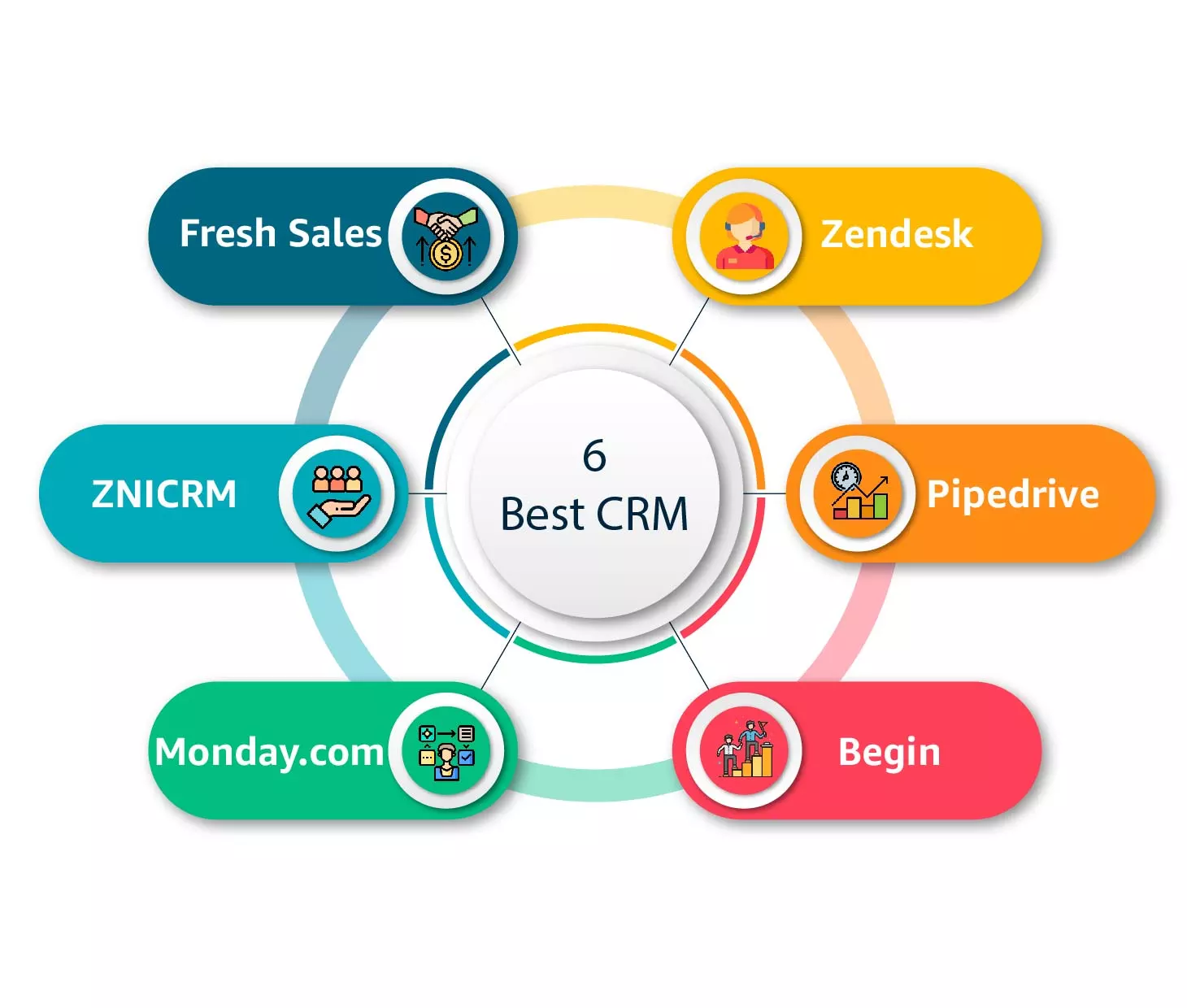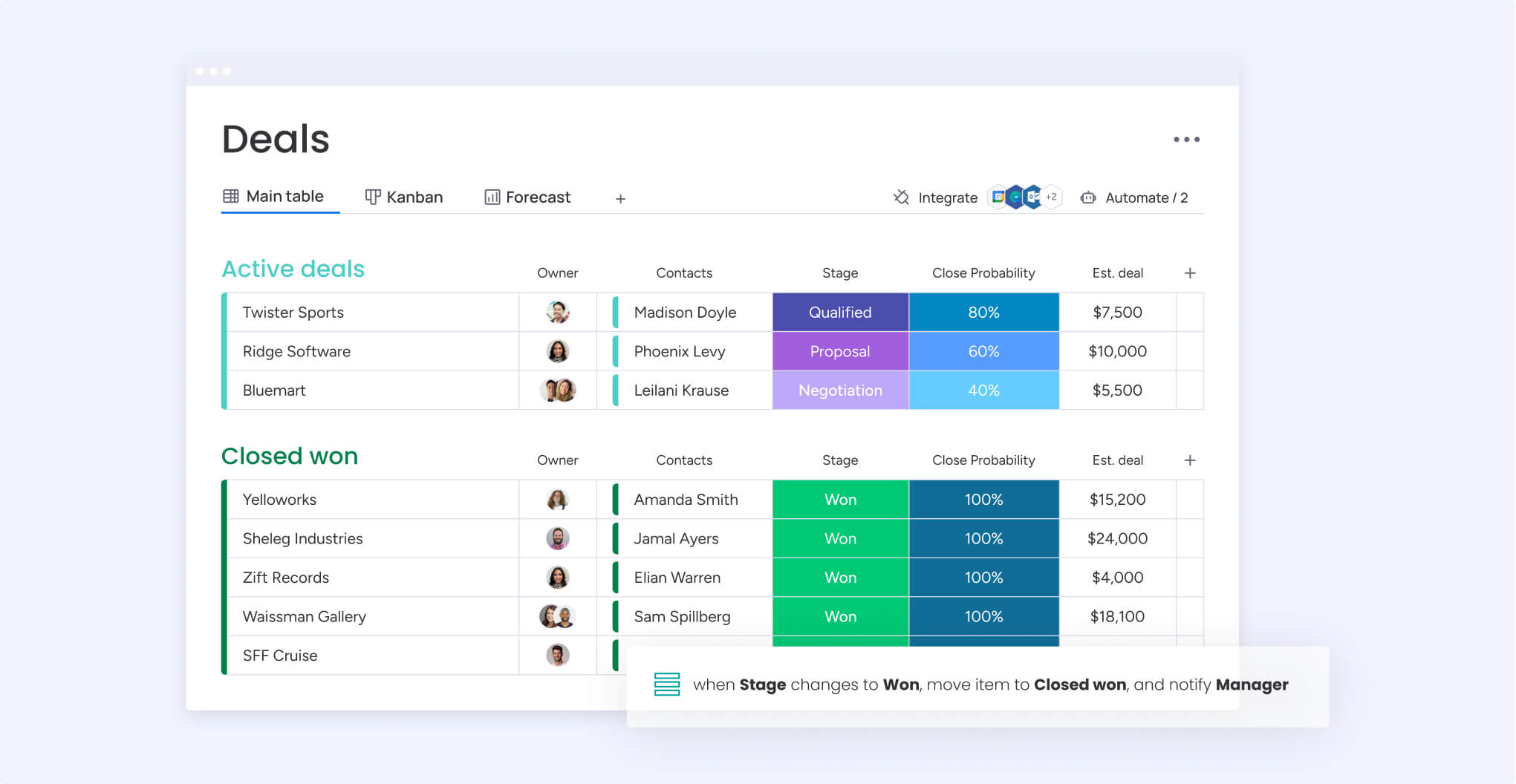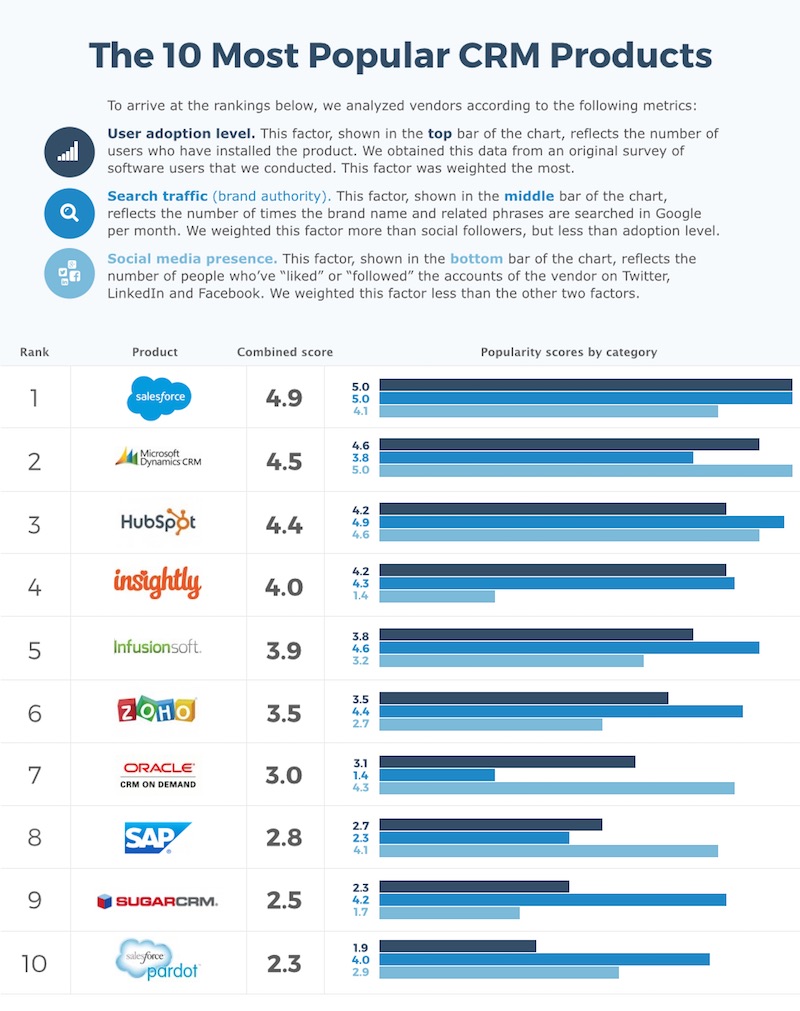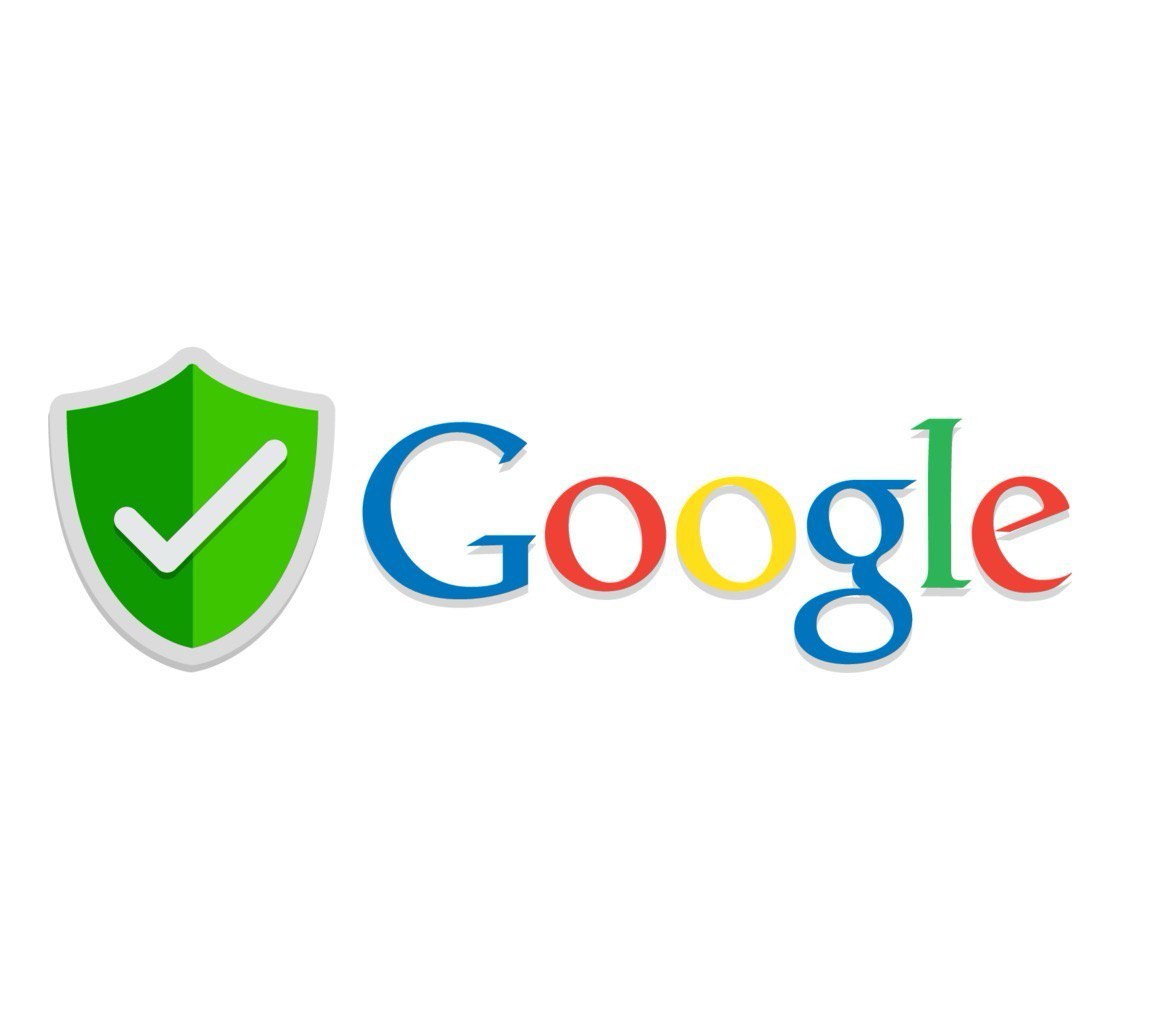As a freelancer, managing multiple clients and projects simultaneously can be a daunting task. To stay organized and focused, it’s essential to have the right tools in place. A Customer Relationship Management (CRM) system can help streamline your workflow, improve communication, and increase productivity.
With numerous options available, choosing the best CRM for your freelance business can be overwhelming. This article will explore the top CRM systems designed specifically for freelancers, highlighting their key features, pricing, and benefits to help you make an informed decision and take your business to the next level.
Top CRM Solutions for Independent Professionals
As a freelancer, managing multiple clients and projects simultaneously can be a daunting task. A Customer Relationship Management (CRM) system can help streamline your workflow, improve client communication, and increase productivity.
In this section, we’ll explore the best CRM systems for freelancers, including their key features, pricing, and benefits.
Key Features to Look for in a CRM System
When selecting a CRM system, freelancers should look for key features such as contact management, project management, and invoice generation. A good CRM system should also integrate with other tools and apps, such as email marketing software and calendar apps.
Additionally, a user-friendly interface and mobile accessibility are essential for freelancers who are always on-the-go.
Benefits of Using a CRM System as a Freelancer
Using a CRM system can bring numerous benefits to freelancers, including improved client relationships, increased productivity, and better time management. A CRM system can help freelancers stay organized, focused, and responsive to client needs, ultimately leading to increased client satisfaction and repeat business.
Popular CRM Systems for Freelancers
Some of the most popular CRM systems for freelancers include HubSpot CRM, Zoho CRM, and Pipedrive. These CRM systems offer a range of features and pricing plans that cater to the needs of independent professionals.
| CRM System | Key Features | Pricing |
|---|---|---|
| HubSpot CRM | Contact management, sales pipeline management, meeting scheduling | Free |
| Zoho CRM | Lead management, sales forecasting, marketing automation | $12/user/month (billed annually) |
| Pipedrive | Sales pipeline management, activity tracking, reporting and analytics | $15/user/month (billed annually) |
Do freelancers need a CRM?

The answer to this question depends on the type of freelancer and the nature of their work. Freelancers who work on a project-by-project basis and have a limited number of clients may not need a CRM. However, those who have a large client base, work on long-term projects, or have a complex sales process may benefit from using a CRM.
Managing Client Relationships
A CRM can help freelancers manage their client relationships more effectively. By storing client information in one place, freelancers can easily access contact details, communication history, and project information. This can help them provide better customer service and improve client satisfaction.
- Store client contact information and communication history
- Track client interactions and project progress
- Set reminders for follow-up tasks and deadlines
Streamlining Workflow and Organization
A CRM can also help freelancers streamline their workflow and stay organized. By automating routine tasks and having a clear overview of their projects and clients, freelancers can save time and focus on high-priority tasks. This can help them deliver projects on time and increase their productivity.
- Automate routine tasks such as follow-up emails
- Track project progress and deadlines
- Have a clear overview of client interactions and project status
Scaling the Business
For freelancers who are looking to scale their business, a CRM can be a valuable tool. By having a clear understanding of their client base and sales pipeline, freelancers can identify opportunities for growth and make informed decisions about their business. This can help them expand their client base and increase their revenue.
- Track sales pipeline and identify new opportunities
- Analyze client data to identify trends and patterns
- Make informed decisions about business growth and development
What is the best CRM for a small business?

The best CRM for a small business is often a matter of debate, as different businesses have different needs and priorities. However, some popular CRM options for small businesses include HubSpot CRM, Zoho CRM, and Pipedrive. These CRM systems are designed to be user-friendly, affordable, and scalable, making them well-suited for small businesses.
Key Features to Consider
When evaluating CRM options for a small business, there are several key features to consider. A good CRM should be able to help businesses manage their sales pipeline, track customer interactions, and analyze sales data. Some key features to look for include:
- Contact management: the ability to store and manage customer contact information
- Sales pipeline management: the ability to track and manage sales leads and opportunities
- Reporting and analytics: the ability to generate reports and analyze sales data
Benefits of Using a CRM
Using a CRM can bring a number of benefits to a small business. By implementing a CRM, businesses can improve their sales processes, enhance customer relationships, and gain valuable insights into their sales data. Some of the key benefits of using a CRM include:
- Increased sales productivity: by automating routine tasks and providing a clear view of the sales pipeline
- Improved customer relationships: by providing a centralized view of customer interactions and preferences
- Data-driven decision making: by providing access to accurate and up-to-date sales data
Implementation and Integration
When implementing a CRM, small businesses should consider the ease of integration with other business systems, such as marketing automation and customer service platforms. A CRM that integrates well with other systems can help to create a seamless customer experience and improve overall business efficiency. Some key considerations for implementation and integration include:
- Ease of use: the CRM should be easy to use and require minimal training
- Integration with other systems: the CRM should be able to integrate with other business systems, such as marketing automation and customer service platforms
- Customization options: the CRM should provide options for customization to meet the specific needs of the business
What CRM is best for contractors?

The best CRM for contractors depends on several factors such as the size of the contracting business, the type of services offered, and the specific needs of the company. Some popular CRM options for contractors include those that offer features such as contact management, lead tracking, and project management.
Key Features to Consider
When selecting a CRM for contracting businesses, there are several key features to consider. A good CRM should be able to manage contacts and leads, track interactions, and provide insights into the sales pipeline.
- Contact management: the ability to store and manage contact information for clients, prospects, and partners
- Lead tracking: the ability to track leads and monitor their progress through the sales pipeline
- Integration with other tools: the ability to integrate with other tools and systems, such as project management software and accounting systems
Popular CRM Options for Contractors
Some popular CRM options for contractors include HubSpot CRM, Pipedrive, and Freshsales. These CRM systems offer a range of features and tools that can help contractors manage their sales pipeline, track leads, and improve customer relationships.
- HubSpot CRM: a free CRM that offers contact management, lead tracking, and sales pipeline management
- Pipedrive: a CRM that is specifically designed for sales teams, offering features such as lead tracking and sales pipeline management
- Freshsales: a CRM that offers features such as contact management, lead tracking, and sales pipeline management, as well as integration with other tools and systems
Benefits of Using a CRM for Contractors
Using a CRM can bring several benefits to contracting businesses, including improved customer relationships, increased sales, and better insights into the sales pipeline.
- Improved customer relationships: a CRM can help contractors manage customer interactions and provide better customer service
- Increased sales: a CRM can help contractors track leads and manage their sales pipeline, leading to increased sales and revenue
- Better insights: a CRM can provide contractors with insights into their sales pipeline, allowing them to make better decisions and improve their business
What is the most used CRM system?

The most used CRM system is Salesforce. It is a comprehensive customer relationship management platform that provides a wide range of tools and features to manage sales, marketing, and customer service activities.
Key Features of Salesforce
Salesforce is a powerful CRM system that offers a variety of features to help businesses manage their customer relationships effectively. Some of the key features include:
- Contact and account management: Salesforce allows businesses to store and manage customer contact information, account details, and interaction history in one place.
- Sales automation: Salesforce provides tools to automate sales processes, such as lead tracking, opportunity management, and sales forecasting.
- Marketing automation: Salesforce offers marketing automation tools that enable businesses to create and execute targeted marketing campaigns across multiple channels.
Benefits of Using Salesforce
Using Salesforce as a CRM system can bring numerous benefits to businesses. Some of the benefits include:
- Improved customer insights: Salesforce provides a unified view of customer data, enabling businesses to gain a deeper understanding of their customers’ needs and preferences.
- Enhanced collaboration: Salesforce allows teams to collaborate more effectively by providing a shared platform for managing customer interactions and sales activities.
- Increased productivity: Salesforce automates many routine tasks, freeing up sales and marketing teams to focus on higher-value activities.
Customization and Integration
One of the key advantages of Salesforce is its ability to be customized and integrated with other business applications. Some of the ways Salesforce can be customized and integrated include:
- Custom objects and fields: Salesforce allows businesses to create custom objects and fields to store unique data that is specific to their organization.
- AppExchange integrations: Salesforce provides a vast marketplace of third-party applications that can be easily integrated with the platform.
- API integrations: Salesforce provides APIs that enable businesses to integrate the platform with other custom applications and systems.
Frequently Asked Questions
What is a CRM system and why do freelancers need it?
A CRM (Customer Relationship Management) system is a tool that helps manage interactions with clients and potential clients. Freelancers need a CRM to organize contacts, track communications, and follow up on leads. It streamlines workflow, improves client satisfaction, and increases productivity. By using a CRM, freelancers can focus on their work while maintaining a professional and efficient client management process.
What features should I look for in a CRM system as a freelancer?
When choosing a CRM, freelancers should look for features like contact management, email integration, task automation, and reporting. A user-friendly interface and mobile accessibility are also essential. Integration with other tools and apps, such as invoicing software or calendar apps, can enhance the CRM’s functionality. Consider a CRM with customizable fields and workflows to fit your specific needs and workflow.
Are there any free CRM systems suitable for freelancers?
Yes, there are free CRM systems suitable for freelancers, such as HubSpot CRM and Zoho CRM. These options offer basic features like contact management and email tracking at no cost. Some CRMs also offer free trials or limited free versions, allowing freelancers to test the system before committing to a paid plan. When evaluating free CRMs, consider the limitations and potential upgrade paths.
Can CRM systems help freelancers with invoicing and payment tracking?
Some CRM systems, like Freshsales and Pipedrive, offer invoicing and payment tracking features or integrate with third-party invoicing tools. These features enable freelancers to manage client interactions, track payments, and follow up on outstanding invoices within a single platform. By using a CRM with invoicing capabilities, freelancers can simplify their administrative tasks and improve cash flow management.


